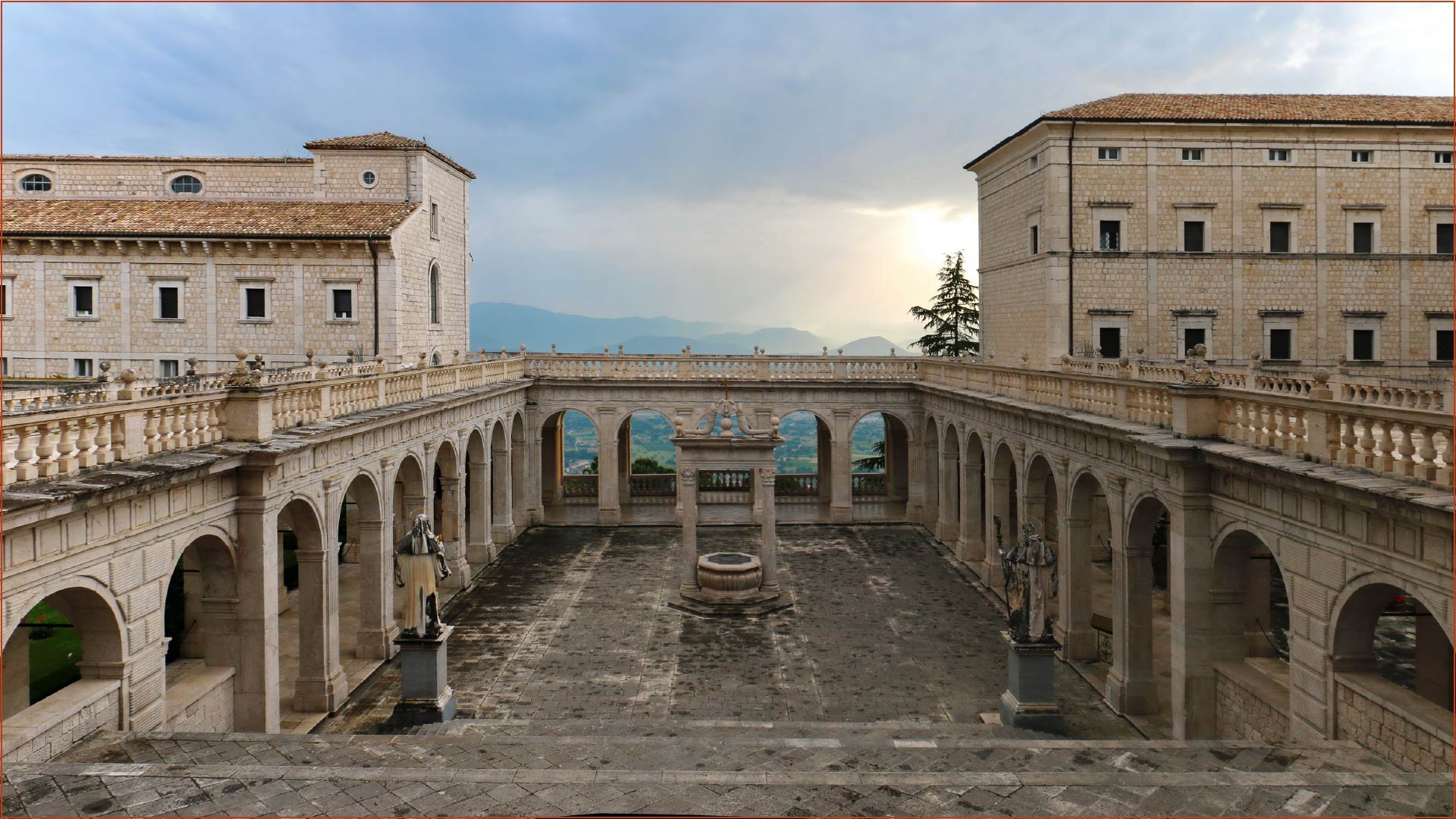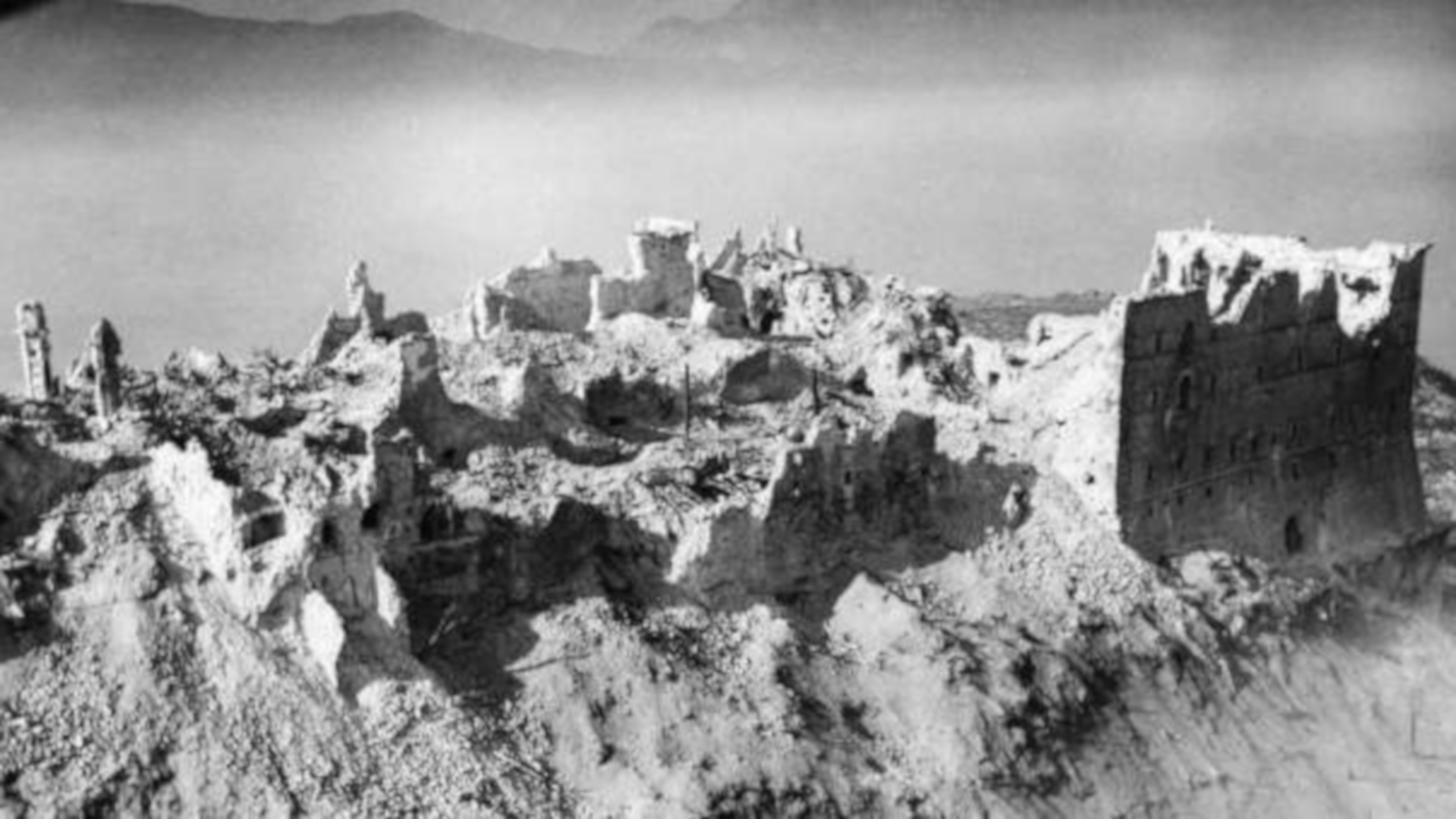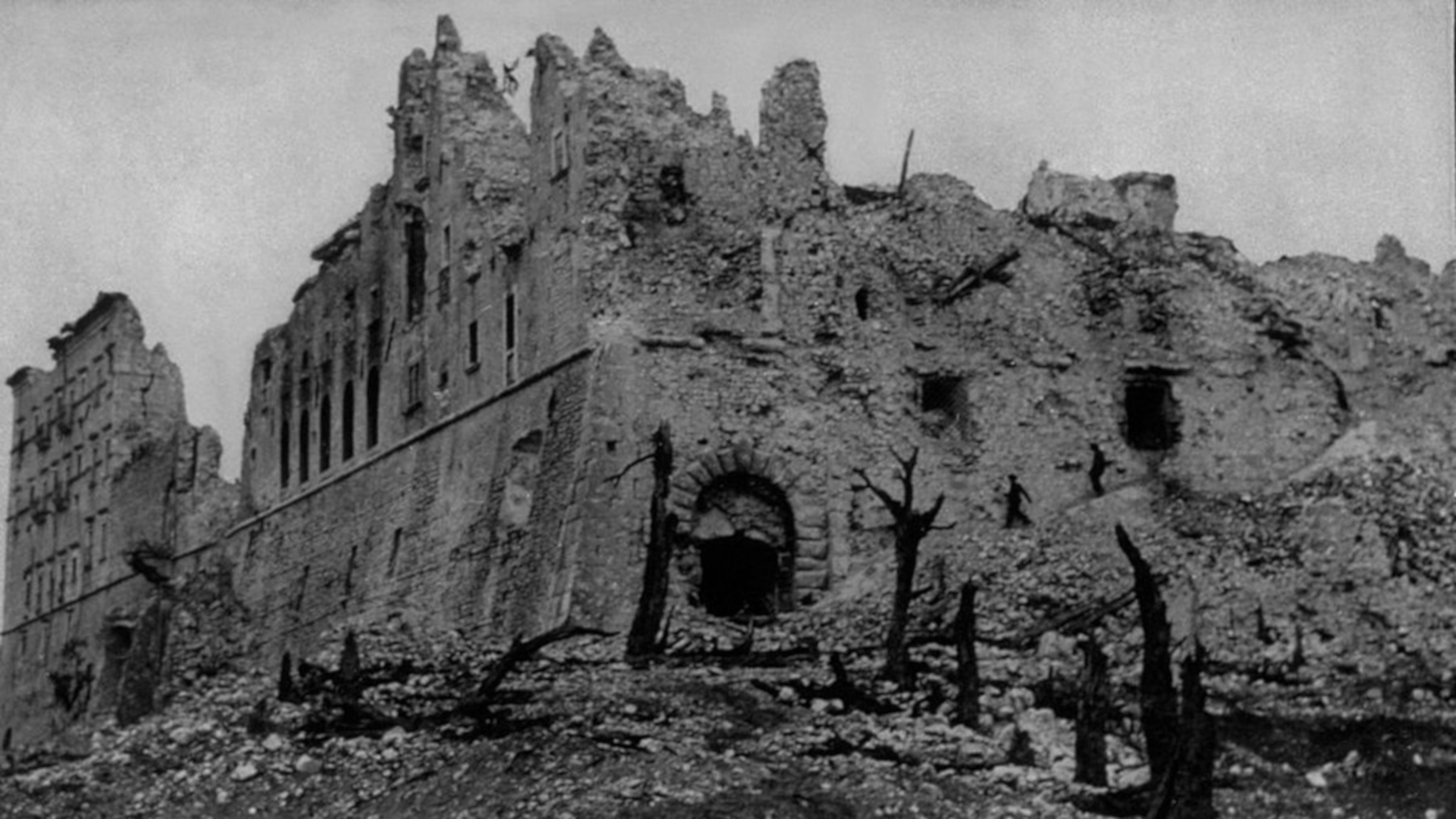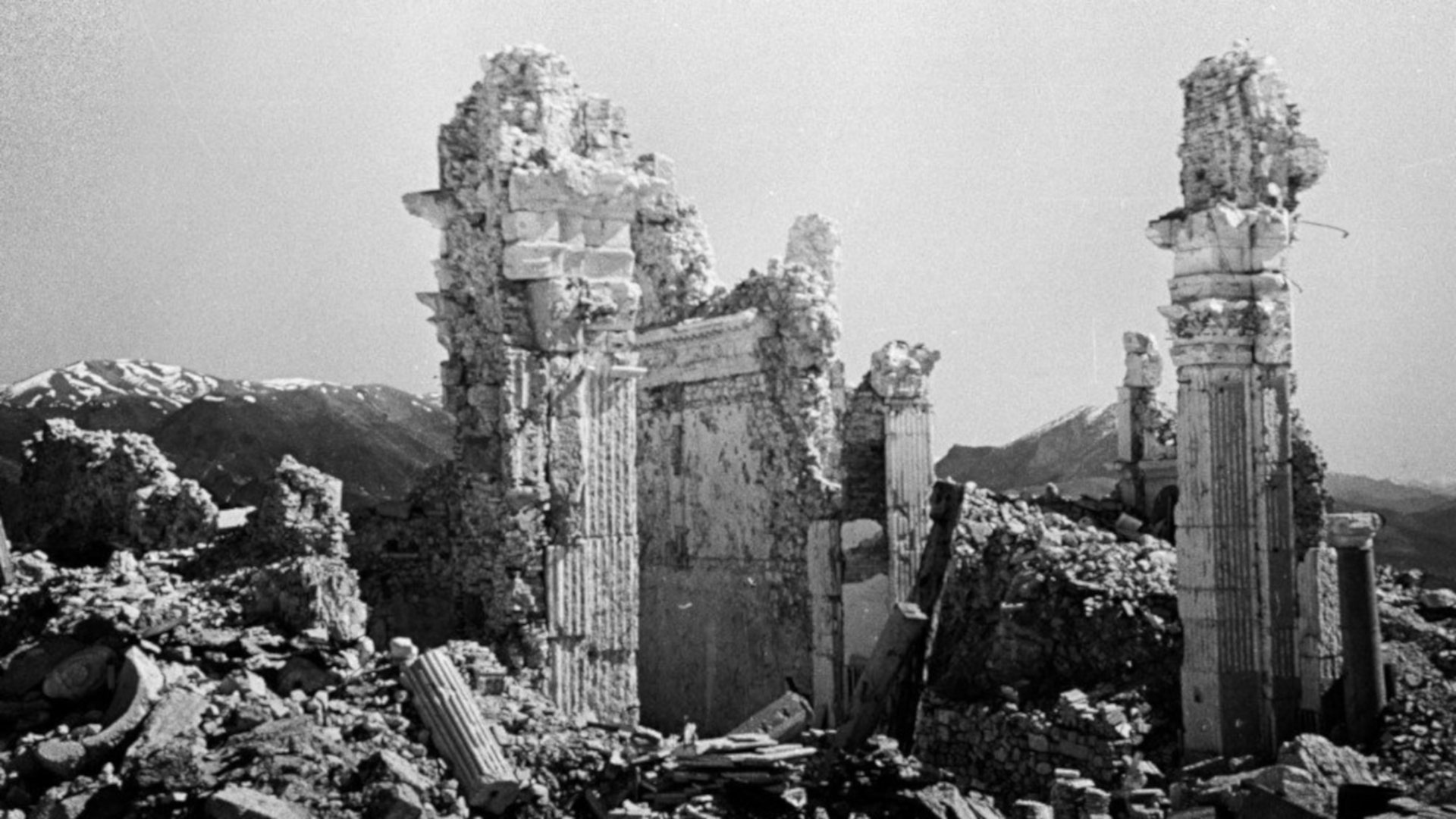Emotions always make a commemoration event special and unforgettable, together with the warmth of the people gathered together. This year, on the Solemnity of the Transitus (Passing) of our Holy Father Saint Benedict, 21 March 2019, the monastic community of Montecassino remembered in a special way the 75th anniversary of the Allied bombing of the monastery.
In 1944, Montecassino was almost completely destroyed by a violent bombing that left behind pain, loss, discouragement and — in spite of the ruins encountered — a great desire to start over with great force.
Succisa Virescit – This Latin motto of the abbey, meaning “having been cut down, it flourishes” (or, “turns to green again”), has witnessed the violence of devastation, yet immediately began to be for the entire world an example of rebirth, to return to occupy its proper place in our world.
The Benedictine Torch of Peace, whose journey has led for many years up to this feast of Saint Benedict, this year first brought its strong and silent message to the Auschwitz-Birkenau concentration camp in Poland, and then to the Polish monastery of Tyniec, where the flame of the Torch has nourished four others, which from 3 March have burned brightly as witnesses to the message of Benedictine peace for the world.
On 21 March, the atmosphere in Montecassino’s basilica cathedral was warm and familial, as a pontifical solemn Mass was presided by His Eminence Giovanni Angelo Cardinal Becciù, Prefect of the Vatican Congregation for the Causes of Saints, and concelebrated by the Archabbot Ordinary of Montecassino, Dom Donato Ogliari OSB and His Excellency Monsignor Gerardo Antonazzo, Bishop of the Diocese of Sora-Cassino-Aquino-Pontecorvo, along with many priests coming from neighboring dioceses and from Rome.
Saint Benedict’s relics, displayed in a reliquary on the basilica cathedral’s high altar, reminded everyone of the saint’s luminary presence, where the celebration found a devoted monastic community, vibrant choir, military and civil dignitaries including the Italian Deputy Minister of Foreign Affairs, and a large representation of local, provincial and regional law enforcement officials, among the loyal Christian faithful filling the basilica cathedral to its seams.
During his homily, Cardinal Becciù spoke of the importance for monastic communities to bring about deeper societal peace through “respect for the rights of all individuals, of their freedom and of their equality” without discrimination, much as Saint Benedict did not discriminate against Latin peoples or barbarians, free persons versus slaves, or the poor or rich (cf. Rule of Saint Benedict, chapter 2). Saint Benedict instead insisted that hospitality be extended to everyone, welcoming the presence of Jesus Christ in their midst (cf. Rule of Saint Benedict, chapter 53.1), so as to create the Christian pax. As such, Benedictine life today is called faithfully to serve as a vibrant testimony to Europe and to peoples across the globe of how to live together in unity and peace, and to welcome others in Christian charity. Saint Benedict thus continues into the present day to serve as a “lamp and light” not only for those monastic communities who have dedicated themselves to living the Christian life through his teachings, but also to all peoples who are journeying in our present world, to be Christians who have committed their energies to build a world where the Beatitudes of our Lord are lived in a spirit of fraternity and reconciliation, true justice and peace.





